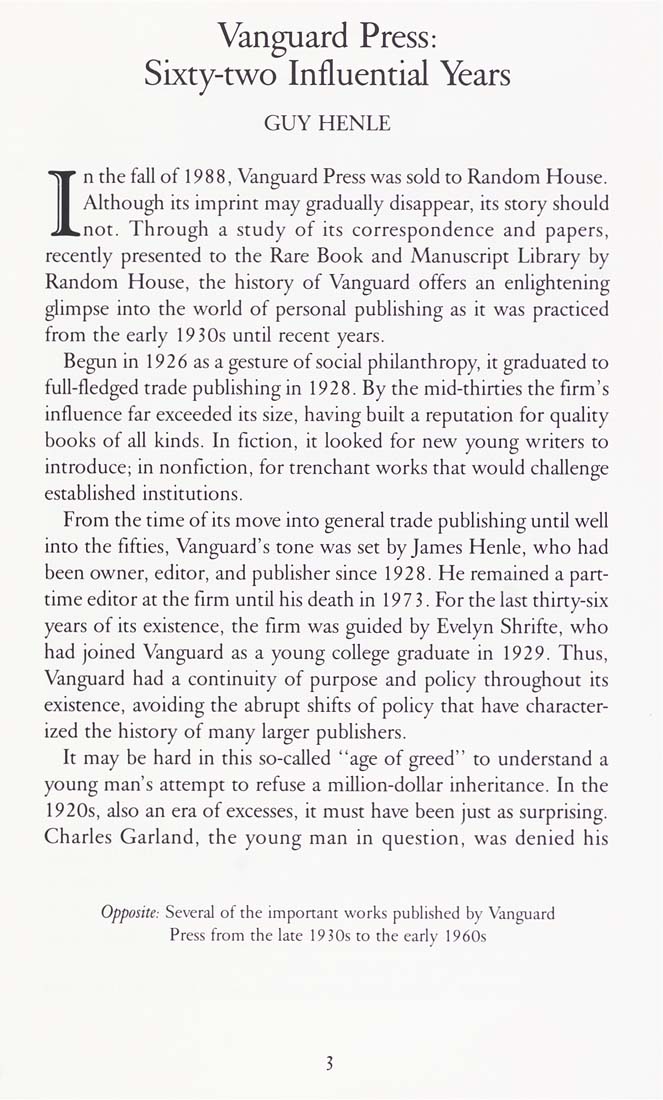Columbia Library columns (v.40(1990Nov-1991May))
(New York : Friends of the Columbia Libraries. )
|
||
|
|
|
|
| v.40,no.1(1990:Nov): Page 3 |

Vanguard Press: Sixty-two Influential Years GUY HENLE In the fall of 1988, Vanguard Press was sold to Random House. Although its imprint may gradually disappear, its story should not. Through a study of its correspondence and papers, recently presented to the Rare Book and Manuscript Library by Random House, the history of Vanguard offers an enlightening glimpse into the world of personal publishing as it was practiced from the early 1930s until recent years. Begun in 1926 as a gesture of social philanthropy, it graduated to full-fledged trade publishing in 1928. By the mid-thirties the firm's influence far exceeded its size, having built a reputation for quality books of all kinds. In fiction, it looked for new young writers to introduce; in nonfiction, for trenchant works that would challenge established institutions. From the time of its move into general trade publishing until well into the fifties. Vanguard's tone was set by James Henle, who had been owner, editor, and publisher since 1928. He remained a part- time editor at the firm until his death in 1973. Eor the last thirty-six years of its existence, the firm was guided by Evelyn Shrifte, who had joined Vanguard as a young college graduate in 1929. Thus, Vanguard had a continuity of purpose and policy throughout its existence, avoiding the abrupt shifts of policy that have character¬ ized the history of many larger publishers. It may be hard in this so-called "age of greed" to understand a young man's attempt to refuse a million-dollar inheritance. In the 1920s, also an era of excesses, it must have been just as surprising. Charles Garland, the young man in question, was denied his Opposite: Several of the imponant works published by Vanguard Press from the late 1930s to the early 1960s |
| v.40,no.1(1990:Nov): Page 3 |







